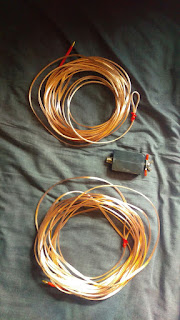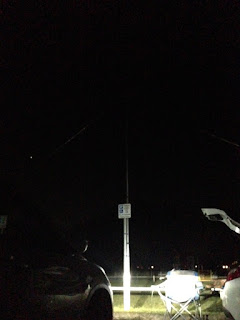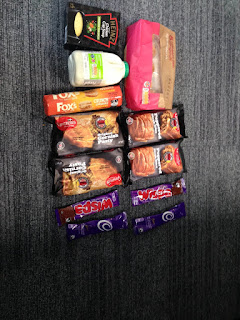On Saturday evening MX0MXO was back on the air again from Laleham park.


We experimented tonight in building an inverted Vee antenna
We used a 10 meter telescopic pole, tied the balun to the top and too 2 wires down either side.

Running between 50 and 100 Watts, results were very good.
Working into the USA on 40, 20, 17 and 15 meter bands.
We worked Scotland on 80 meters
We also had good results around Europe and Russia.


Essential evening supplies











